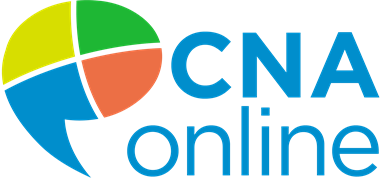The U.S. Department of Health and Human Services declared a Public Health Emergency (PHE) in response to the COVID-19 pandemic on January 31, 2020.

The Centers for Medicare & Medicaid Services followed by issuing waivers covering certain requirements that directly impact nurse aide training. Legislators and regulators reacted by approving individual state waivers aligned with CMS’ guidance that aimed to ease the challenges of increasing the number of certified nurse aide caregivers. Some of the most significant challenges include the closure of or limited access to nurse aide testing facilities, a shortage of qualified nurse instructors and mandated quarantine protocols.
In an effort to provide long-term care facilities with critical tools to onboard new caregivers, the American Health Care Association partnered to develop two Temporary Nurse Aide (TNA) training courses in March 2020. As of October 18th, 2021, there have been 234,333 total completions for AHCA’s TNA courses — 224,124 students for the eight-hour course and 10,209 students for the 16-hour course.
TNAs are allowed to work under the direction of the clinical care team within facilities during the PHE, which is currently extended until January 16, 2022.
The interest level, as evident by this tremendous response and the learnings provided during the pandemic, offers the aging care profession several unique opportunities to bolster the licensed nurse aide workforce. Here are some strategies which could be explored further:
- Create a licensing or registry pathway for TNAs
- Offer TNAs credit for clinical skills learned through on-the-job work experience performed under the supervision of licensed nurses who can verify competencies.
- Limit the mandated training for TNAs to the theory elements. Upon completion, they would qualify to take their state license test.
- Expand the number of testing venues and allow theory testing for licensing to occur in facilities via proctored online platforms.
- Expand the time period that TNAs will have to become licensed or added to the state registry upon the PHE expiration from 120 days to at least 12 to 18 months.
- Temporarily waive the requirement that qualified RN instructors need Method of Instruction (MOI) training prior to training TNAs.
- Practical Improvements to Regulatory Requirements
- Allow for the theory training and clinical training to be completed in separate locations.
- Offer statewide classes with students from multiple facilities in a group cohort doing skills at their respective employer facilities.
- Grant waivers to allow facilities that have recent regulatory jeopardies that aren’t associated with direct clinical care to train nurse aides or consider reducing the restricted two-year ban.
- Approve the licensing and use of Medication Aides for skilled nursing and long-term care as a career pathway option for nurse aides.
- Universally approve and adopt hybrid online training models for nurse aides that will increase access to students by overcoming transportation, offering flexibility for family dynamics and allowing candidates to work while completing their training.
In summary, difficult challenges can lead to innovative solutions through collaboration and open-mindedness. Most of us agree that there must be continual improvement for all aspects of the nurse aide position itself, including overall compensation packages, job responsibilities and career development potential.
Finally, recognizing and rewarding such dedicated healthcare heroes must also be economically affordable based on the overall facility financial constraints for the service provider organizations within our communities. We have a unique opportunity beginning with the retention of recently trained TNAs that can chart a new direction for future professionals interested in this personally rewarding career.
John P. Reinhart, CPA, MBA, is a serial healthcare entrepreneur and an innovator specializing in the senior living and the longevity economy sectors. John is the co-founder and president of Academic Platforms. Academic Platforms is the exclusive partner for the American Health Care Association in providing online clinical education focused on nurse aide and CNA pre-licensure training.
The opinions expressed in McKnight’s Long-Term Care News guest submissions are the author’s and are not necessarily those of McKnight’s Long-Term Care News or its editors.

